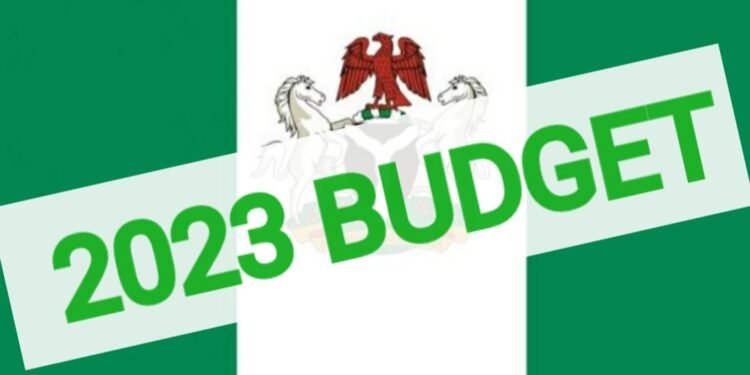President Muhammadu Buhari on Friday arrived at a joint session of the National Assembly amid tight security to present the 2023 Appropriation Bill.
The N20.51 trillion budget is the last budget he will present before his tenure elapses in 2023.
The budget which shows over 15 per cent increase from the amount budgeted in 2022 is tagged the budget of Fiscal Sustainability and transition, according to the president.
Below are 2023 budget parameters and fiscal assumptions, revenue estimates and expenditure as contained in president Buhari’s 2023 budget presentation speech.
2023 BUDGET PARAMETERS AND FISCAL ASSUMPTIONS
41. Distinguished Members of the National Assembly, the 2023 to 2025 Medium Term Expenditure Framework and Fiscal Strategy Paper sets out the parameters for the 2023 Budget as follows:
a. Oil price benchmark of 70 US Dollars per barrel;
b. Daily oil production estimate of 1.69 million barrels (inclusive of Condensates of 300,000 to 400,000 barrels per day);
c. Exchange rate of 435.57 Naira per US Dollar; and
d. Projected GDP growth rate of 3.75 percent and 17.16 percent inflation rate.
2023 REVENUE ESTIMATES
42. Based on these fiscal assumptions and parameters, total federally-collectible revenue is estimated at 16.87 trillion Naira in 2023.
43. Total federally distributable revenue is estimated at 11.09 trillion Naira in 2023, while total revenue available to fund the 2023 Federal Budget is estimated at 9.73 trillion Naira. This includes the revenues of 63 Government-Owned Enterprises.
44. Oil revenue is projected at 1.92 trillion Naira, Non-oil taxes are estimated at 2.43 trillion Naira, FGN Independent revenues are projected to be 2.21 trillion Naira. Other revenues total 762 billion Naira, while the retained revenues of the GOEs amount to N2.42 trillion Naira.
45. The 2023 Appropriation Bill aims to maintain the focus of MDAs on the revenue side of the budget and greater attention to internal revenue generation. Sustenance of revenue diversification strategy would further increase the non-oil revenue share of total revenues.
PLANNED 2023 EXPENDITURE
46. A total expenditure of 20.51 trillion Naira is proposed for the Federal Government in 2023. This includes 2.42 trillion Naira spending by Government-Owned Enterprises. The proposed 20.51 trillion Naira 2023 expenditure comprises:
a. Statutory Transfers of N744.11 billion;
b. Non-debt Recurrent Costs of N8.27 trillion;
c. Personnel Costs of N4.99 trillion;
d. Pensions, Gratuities and Retirees’ Benefits of N854.8 billion;
e. Overheads of N1.11 trillion;
f. Capital Expenditure of N5.35 trillion, including the capital component of Statutory Transfers;
g. Debt Service of N6.31 trillion; and
h. Sinking Fund of N247.73 billion to retire certain maturing bonds.
FISCAL BALANCE
47. We expect total fiscal operations of the Federal Government to result in a deficit of 10.78 trillion Naira. This represents 4.78 percent of estimated GDP, above the 3 percent threshold set by the Fiscal Responsibility Act 2007.
48. As envisaged by the law, we need to exceed this threshold considering the need to continue to tackle the existential security challenges facing the country.
49. We plan to finance the deficit mainly by new borrowings totalling 8.80 trillion Naira, 206.18 billion Naira from Privatization Proceeds and 1.77 trillion Naira drawdowns on bilateral/multilateral loans secured for specific development projects/programmes.
50. Over time, we have resorted to borrowing to finance our fiscal gaps. We have been using loans to finance critical development projects and programmes aimed at further improving our economic environment and enhance the delivery of public services to our people.
51. As you are aware, we have witnessed two economic recessions within the period of this Administration. A direct result of this is the significant decline in our revenue generating capacity.
52. In both cases, we had to spend our way out of recession, resulting in higher public debt and debt service. It is unlikely that our recovery from each of the two recessions would have been as fast without the sustained government expenditure funded by debt.
Ifunanya Ikueze is an Engineer, Safety Professional, Writer, Investor, Entrepreneur and Educator.























































